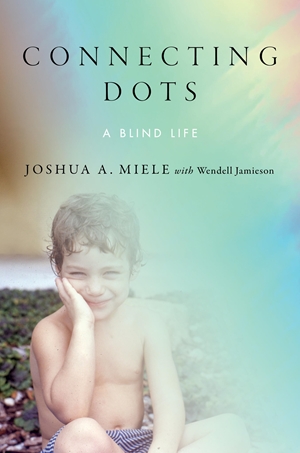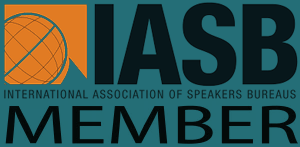Joshua A. Miele is a prominent blind advocate, scientist, designer of accessible technologies, and author of the memoir, Connecting Dots—A Blind Life. In 2021, he was awarded a MacArthur Fellowship for his creative inventions that solve important, everyday problems for blind and visually-impaired people. He has contributed award-winning accessibility innovations in such areas as tactile street and transit maps, screen readers that make it possible for blind customers to use off-the-shelf computers and mobile devices, and audio-description technologies making video more accessible for blind viewers. His work has made travel, tablets, TVs, and even microwave ovens more accessible.
Miele’s Tactile Maps Automated Production (TMAP) uses cloud technologies to rapidly produce inexpensive accessible street maps of almost any location on earth. His creation of accessible station maps for Bay Area Rapid Transit (BART) improves independence for blind and visually-impaired travelers. His YouDescribe—a web platform for creating and sharing crowd-sourced audio descriptions of YouTube videos—allows anyone, anywhere, to describe any YouTube video and share it with the world. Miele also led development of an app called overTHERE that used virtual audible signs to provide a quick and easy way for blind individuals to learn about the locations of shops, businesses, and other nearby features.
In his current role as Amazon Design Scholar, Miele helps guide the non-visual customer experience for Amazon devices and advises on accessible design, research methods, and disability inclusion across the company. He has helped develop Amazon accessibility features such as the VoiceView screen reader that makes Fire Tablets and TVs accessible to blind customers, Alexa’s “Show and Tell,” which uses the camera on the Echo Show to identify pantry items, and expanded capabilities for audio description on Prime Video.
More than just a scientist and designer, Miele is an outspoken advocate, raising public awareness about the urgent need to make the world more disability-inclusive and equitable through technology and social change. Despite the seriousness of his message, he is known for his engagingly candid and humorous approach to talking about broader disability issues and his own lived experience.
In his memoir, Connecting Dots (March 2025), written with award-winning journalist Wendell Jamieson, Miele chronicles the story of his blind life. The book begins by relating how he was burned and blinded in a violent assault at the age of four, but quickly moves on to describe growing up and getting on with his blind life, offering insights on life and disability that are nothing short of extraordinary. He speaks at universities, corporations, schools, and nonprofits about his research, experiences, and powerful perspective on issues surrounding technology, disability, and equity.






